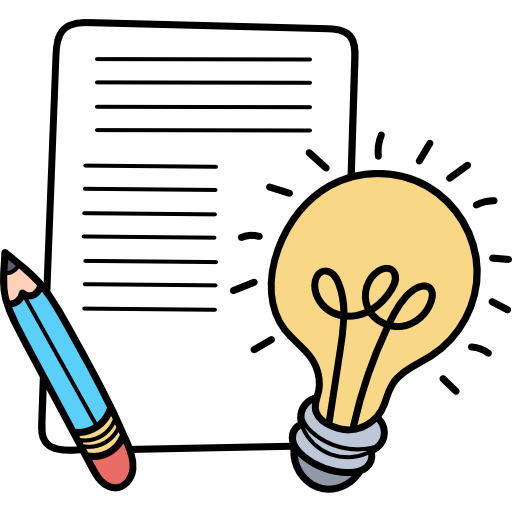دليل المعلم 2020 2021 تربية أخلاقية منهج إنجليزي صف سادس فصل ثالث
Values
Values are at the heart of moral education. They are essential to a person's sense of self; they operate as the personal benchmarks that guide our thoughts and actions. The Moral Education aims to support students in identifying their personal goals and the motivation behind them. Moral education explores many multi-faceted issues, including trade, mental health and the distribution of resources. It also enables teachers and learners to explore the ethical implications behind complex global issues, enabling them to engage as members of the UAE and international community
It is hoped that in working through the Moral Education curriculum, teachers and students will become inspired and motivated by a commitment to the values of social justice, human rights, care for the environment, empathy, respect for diversity and global solidarity. The lessons of Moral Education course are founded on the principles of solidarity, equality and inclusion, and support a process for teaching and learning which explores how personal values are shaped and directed. This Moral Education course does not impose values, but rather encourages students to explore ethical issues, and develop an awareness on their individual values
Teaching and Learning - A Pedagogical Approach Group is important in encouraging students to be proactive and autonomous learners. Throughout this moral education curriculum, there is a focus on inclusive group work, and a student driven approach to teaching and learning in the classroom. Students are encouraged to have open discussions, guided conversations, activities, and philosophical debates. This is intended to take students through a process of awareness-raising and critical thinking, which will allow them to consciously enact moral reasoning in their everyday lives
Action Projects In the upper grades of the course students are encouraged and enabled to undertake Action Projects, where students are actively involved in developing an issue or topic, which arises in class, beyond the usual limits of textbooks and course materials. These Action Projects encourage active and co-operative learning and the development and acquisition of skills. They are part of the 'Hands' (pragmatic) domain of skills development
Read the article about Destigmatising Mental Health then answer the questions that follow
People who suffer from mental health issues face many obstacles in life. If they are lucky, they have a good support network around them, with friends and family who help them through their days. However, unlike other health issues, mental health issues are often misunderstood. People who suffer from depression, for example, are often told that they are just "having a bad day" or going through "a phase". They might be told to "cheer up" or pull themselves together. They might hear that they need to "try harder" to get "better". These unhelpful attitudes add to the stigma of mental health. Sufferers might feel ashamed about their condition, and in extreme cases might be discriminated against because of it. This of course all adds to burden they are already carrying. So how can you help to combat the stigma often associated with mental health? First, remember that these people are suffering. How would you deal with a friend who was suffering from a toothache or a broken leg? You'd show empathy and try to help him, right? The same attitude is needed when dealing with mental health. Suppose you have a friend who is dealing with a mental health issue. Show empathy and compassion. Think about the impact of your words and actions. If your friend wants to open up and talk to you, listen to him. Show him that you want to help. If he chooses to stay silent, don't force him to talk. Sometimes people need time to make the decision to share their
Read the following article then discuss the questions that follow
In the modern world, everybody seems to be busy. Life is a constant swirl of activity: tasks, deadlines, classes, meetings, chores and so on. We are all moving so fast that we forget that sometimes we need to slow down. We need to literally take a breath! Because we are constantly doing, we may lose touch with how we are feeling. Mindfulness is a very effective relaxation technique that gives you a chance to check in' with yourself. You choose to stop for a moment (maybe a minute, maybe fifteen minutes) and take notice of how you are feeling. One of the core practices in mindfulness is attention to breathing. This simply involves paying attention to your breath, noting each in breath and each out breath. You don't need to change your breathing, you just need to notice this. This helps your brain to slow down and helps you to notice how you are feeling. You have a chance to listen to what your body is telling you. As you relax more, you start to pay attention to your body. Do you feel relaxed? Is there pain or tension anywhere? Do you feel calm or is your mind and your heartbeat) racing? For now, you are just noticing your feelings. You are not judging or analysing them. By taking notice of what your body and mind are telling you, you can start to think about whether you need to change your lifestyle or seek help
Read about inclusion of individuals with intellectual disabilities in sports then answer the questions that follow
The 2019 Special Olympics World Summer Games will take place in Abu Dhabi, in 2019. Special Olympics is a global movement that unleashes the human spirit through the transformative power and joy of sports, every day around the world. We empower people with intellectual disabilities to become accepted and valued members of their communities, which leads to a more respectful and inclusive society for all. 7,000 athletes and their families, from 170 countries will be welcomed at the Special Olympics World Summer Games in Abu Dhabi. The athletes will compete in 22 sports, taking place at multiple venues throughout the city. Commenting on the momentous occasion, the Chairman of the Abu Dhabi World Games Higher Committee said: "Abu Dhabi has long been at the forefront of the inclusion of individuals with intellectual disabilities in our region. Today, we are celebrating a milestone in a journey that began with the vision of Sheikh Zayed bin Sultan Al Nahian-may God have mercy upon his soul-in promoting an inclusive society. We are proud to continue this tradition through our leaders, and extend our commitment to the Special Olympics movement



